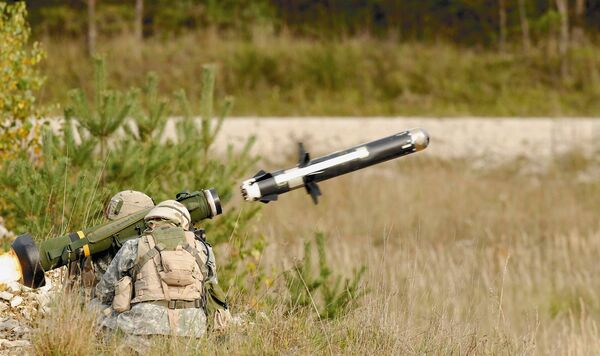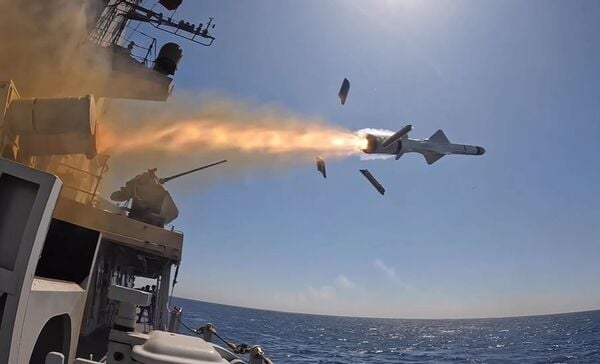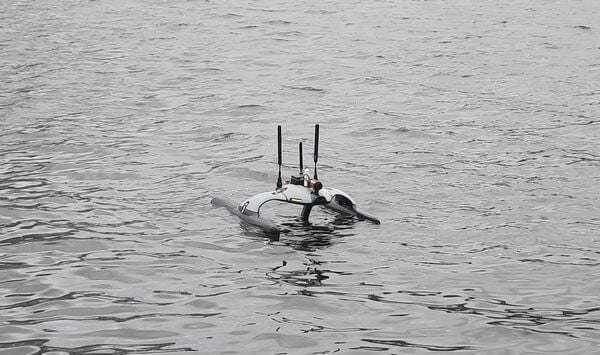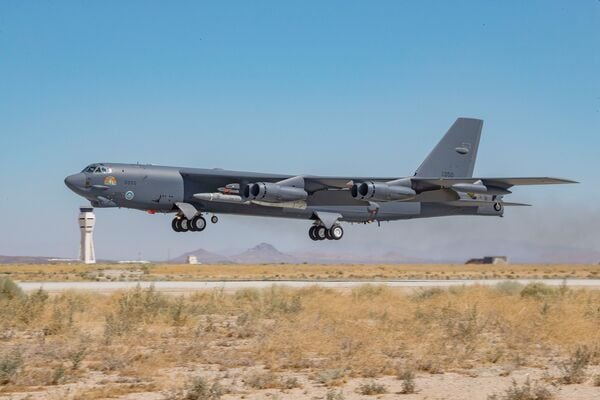- About
- Intara
- Capabilities
- Advisory
- Resources
- News
- Store
Ukraine conflict: US sharpens focus on bolstering Taiwan asymmetric capability
15 March 2022
by Jon Grevatt


The utility of “unit-level tactical fires” weapons such as Javelin anti-tank systems has been highlighted by the US as important in its efforts to support Taiwan's asymmetric capabilities. (US Army)
Russia's invasion of Ukraine has intensified US efforts to ensure it is supporting Taiwan's requirement to acquire ‘asymmetric' capabilities to respond to any similar military offensive by China.
US government officials have told Janes that military sales to Taiwan in recent years have increasingly been focused on building the island's asymmetric capability and that war in Ukraine has highlighted the value of such assistance.
Other senior US government officials underscored in a recent Senate Foreign Relations Committee hearing the requirement for Washington to further strengthen its asymmetric support of Taiwan, which Beijing views as a province and not as a sovereign state.
A spokesperson for the US Department of Defense (DoD) told Janes that the US is increasingly concerned about China's “destabilising” and growing military activities near Taiwan. These include near-daily Chinese military aircraft incursions into Taiwan-claimed airspace and the Chinese navy's now constant presence close to the island.
The spokesperson said the US commitment to supporting Taiwan is “rock-solid”, in line with the Taiwan Relations Act (TRA) 1979, through which Washington is committed to provide the island with defensive equipment.
“We have also been clear that, in accordance with the Taiwan Relations Act, the United States would regard any effort to determine the future of Taiwan by other than peaceful means a threat to the peace and security of the Western Pacific, and of grave concern to the United States,” said the spokesperson.
The DoD spokesperson also made reference to China's “tacit support” for Russia's war in Ukraine and its potentially wide implications. On 14 March it was reported that China was preparing to provide support to Russia in its war in Ukraine. “We have been clear that [China's] tacit support for Russian aggression is alarming and represents a serious security concern for Europe,” said the DoD spokesperson.
A spokesperson from the US Department of State told Janes that under the TRA the US has authorised, since 2017, about USD18 billion in Foreign Military Sales to Taiwan and Direct Commercial Sales of USD2.3 billion. The spokesperson added that such sales have included asymmetric capabilities.
“The United States also supports Taiwan with training and encourages its innovative and asymmetric security posture,” the spokesperson said. This support also involves “continual dialogue” about how the US can provide Taiwan to develop “self-defence capability”.
Comparing Russia's invasion in Ukraine with any Chinese offensive against Taiwan, the US State Department spokesperson said, “These are very different contingencies, though the utility of unit-level tactical fires such as Stinger [manportable air-defence systems] and Javelin [anti-tank systems] is obvious. We've also seen the immense value that our alliances and partnerships bring to bear, and which magnify and multiply our global security capabilities.”
In comments to the Senate Foreign Relations Committee on 10 March, Jessica Lewis, the US State Department's assistant secretary of state for political-military affairs, said Russia's invasion of Ukraine has highlighted the importance to the US of providing more asymmetric capabilities to Taiwan to help the island prepare for a potential invasion from China.
Defining asymmetric capability, Lewis said, “It needs to be cost-effective, mobile, resilient, and decentralised defensive systems. We have seen these used to great effect in Ukraine. We are looking [at] ISR (intelligence, surveillance, and reconnaissance) systems, short-range air-defence systems, naval sea mines, and coastal defence and cruise missiles.”
Mara Karlin, US assistant secretary of defence for strategy, plans, and capabilities, added that the US and Taiwan have been holding “very regular consultations” to assess the island's defence requirements.
Karlin added in the hearing, “I think the situation we're seeing in Ukraine right now is a very worthwhile case study for [Taiwan]... about why Taiwan needs to do all it can to build asymmetric capabilities, to get its population ready, so that it can be ready as quickly as possible should China choose to violate its sovereignty.”
Indonesia to restart procurement process for more Exocet missiles
18 March 2024
by Ridzwan Rahmat


An Exocet MM40 Block 3 missile being launched from an Indonesian Navy Bung Tomo-class frigate. The country's latest attempt to replenish its stock of Exocet missiles has been delayed by non-conformity issues. (Indonesian Navy Armada I)
Indonesia will have to restart a process to replenish the country's stock of MBDA Exocet MM40 Block 3 anti-ship missiles after an earlier attempt failed because of licensing non-conformity issues.
A 24 February letter from the Indonesian Ministry of Finance's (MoF's) Directorate General of Budget Financing and Risk Management sent to various departments at the country's Ministry of Defense (MoD) confirmed that a previously granted permission to procure the missiles with foreign loans has now lapsed.
A copy of the letter was provided to Janes on 18 March by sources close to the procurement process.
In the letter, the MoF advised the respective MoD departments to resubmit a request for a total of three programmes for which the permission to take on foreign loans has lapsed, including the Exocet missile procurement.
EvoLogics preparing further deliveries of Sonobot USVs to Ukrainian armed forces
18 March 2024
by Neil Dee


EvoLogics Sonobot 5 USV being demonstrated at Oceanology International 2024 in London on 13 March. (Janes/Neil Dee)
German company EvoLogics is planning to deliver a further batch of Sonobot unmanned surface vehicles (USVs) to the Ukrainian armed forces. EvoLogics CEO Fabian Bannasch told Janes at Oceanology International 2024, held in London on 12–14 March, that his company is “currently preparing a fourth configuration of Sonobot with enhanced underwater data networking and positioning capabilities in order to guide and support complex underwater missions with dive teams, and AUVs [autonomous underwater vehicles] where the Sonobot will be the gateway buoy at the surface” for the Ukrainian armed forces. Sonobots are a family of small USVs of about 1.3 m in length that can be folded and transported by a single person.
Pentagon budget 2025: USAF funds HACM but not ARRW development
13 March 2024
by Zach Rosenberg


A B-52H Stratofortress assigned to the 419th Flight Test Squadron takes off from Edwards Air Force Base, California, in 2020. The aircraft conducted a captive-carry flight test of the AGM-183A ARRW, a programme that is zeroed out in the FY 2025 budget. (US Air Force/Matt Williams)
The US Air Force (USAF) requested just shy of USD517 million to continue development of Raytheon's Hypersonic Attack Cruise Missile (HACM) hypersonic air-breathing missile in its fiscal year (FY) 2025 presidential budget request, but zeroed out the procurement of the Lockheed Martin AGM-183 Air-launched Rapid Response Weapon (ARRW) hypersonic boost-glide weapon.
The FY 2025 funding request is a change from that of FY 2024, which requested USD350 million for HACM and USD150 million for ARRW.
ARRW was for years considered the frontrunner in the US's race to field an air-launched hypersonic weapon, but the system has seen mixed results in all-up round flight-testing, notching both successes and failures. The final all-up round test is thought to be upcoming, following the USAF's publication of a photograph depicting the munition in Guam, hanging from the wing of its B-52 launch platform.
Russia's invasion of Ukraine has intensified US efforts to ensure it is supporting Taiwan's requirem...
Latest Podcasts
Iran Israel analysis
In this podcast Janes analysts discuss the Iranian attacks on Israel on the 14 April. They highlight the military systems used by Iran and the performance and impact of these on Israel. They also discuss the implications of this attack goi...
Listen nowJanes Case Studies
Using Janes Intara to build a common intelligence picture: Russian build up on the Ukrainian border
View Case StudyNews Categories
 Weapons Details
Weapons Details